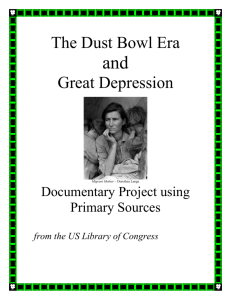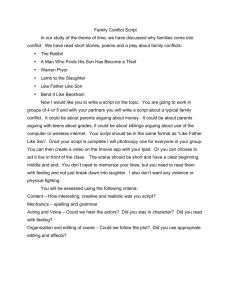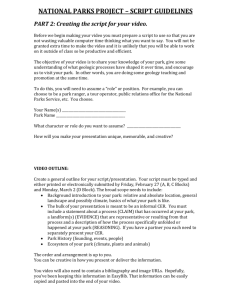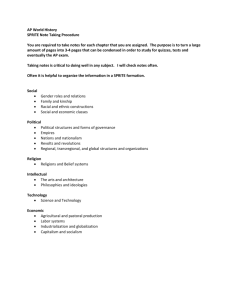Caribbean Revolutions Documentary Project
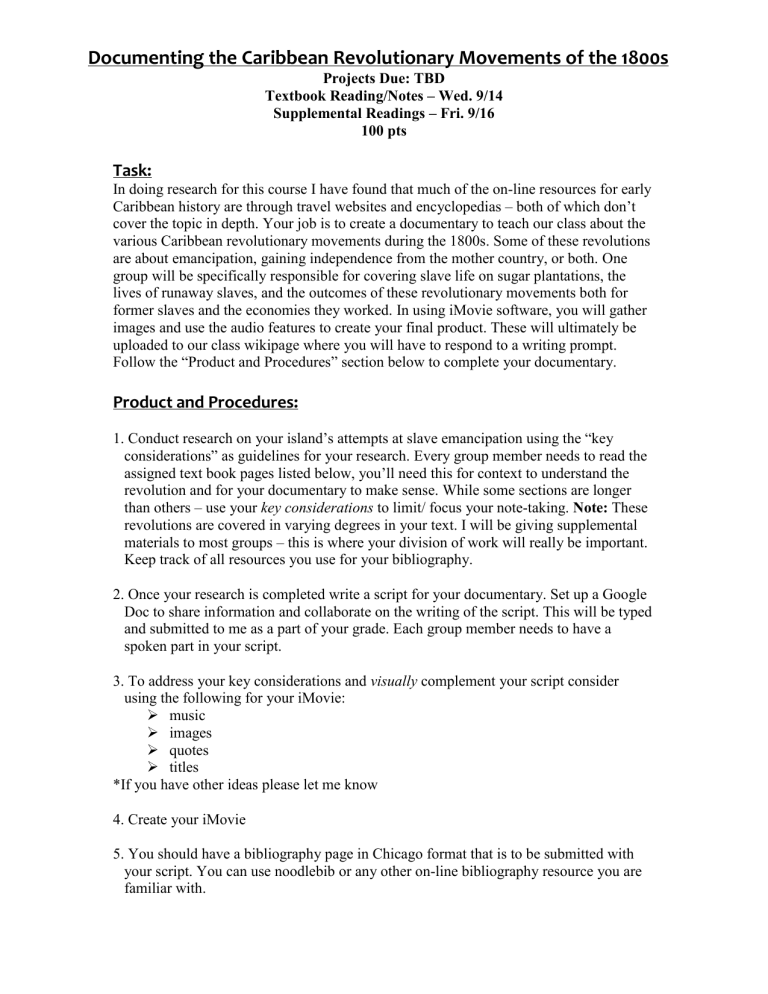
Documenting the Caribbean Revolutionary Movements of the 1800s
Projects Due: TBD
Textbook Reading/Notes – Wed. 9/14
Supplemental Readings – Fri. 9/16
100 pts
Task:
In doing research for this course I have found that much of the on-line resources for early
Caribbean history are through travel websites and encyclopedias – both of which don’t cover the topic in depth. Your job is to create a documentary to teach our class about the various Caribbean revolutionary movements during the 1800s. Some of these revolutions are about emancipation, gaining independence from the mother country, or both. One group will be specifically responsible for covering slave life on sugar plantations, the lives of runaway slaves, and the outcomes of these revolutionary movements both for former slaves and the economies they worked. In using iMovie software, you will gather images and use the audio features to create your final product. These will ultimately be uploaded to our class wikipage where you will have to respond to a writing prompt.
Follow the “Product and Procedures” section below to complete your documentary.
Product and Procedures:
1. Conduct research on your island’s attempts at slave emancipation using the “key considerations” as guidelines for your research. Every group member needs to read the assigned text book pages listed below, you’ll need this for context to understand the revolution and for your documentary to make sense. While some sections are longer than others – use your key considerations to limit/ focus your note-taking. Note: These revolutions are covered in varying degrees in your text. I will be giving supplemental materials to most groups – this is where your division of work will really be important.
Keep track of all resources you use for your bibliography.
2. Once your research is completed write a script for your documentary. Set up a Google
Doc to share information and collaborate on the writing of the script. This will be typed and submitted to me as a part of your grade. Each group member needs to have a spoken part in your script.
3. To address your key considerations and visually complement your script consider using the following for your iMovie:
music
images
quotes
titles
*If you have other ideas please let me know
4. Create your iMovie
5. You should have a bibliography page in Chicago format that is to be submitted with your script. You can use noodlebib or any other on-line bibliography resource you are familiar with.
Information/Timeframe:
Some materials I will provide but you can also use the following resources: ABC-
Clio, Credo Reference, Gale Virtual Reference Library and your textbook. These resources can be found through the WHS website and have user name/passwords which you may already have or I can provide you. I also provided some links that may be helpful under each listing below.
Each member will be responsible for researching information about the key considerations.
You will have approximately 4-5 class periods to work on this so it is important that you keep up with the reading outside of class. See the dates under the title for deadlines.
Current due date is TBD
Grading:
I will be evaluating the following in grading this project:
1) Group members’ cooperation, collaboration, and effective use of class time
2) Quality of documentary script: information and your success in addressing the key considerations
3) Quality of documentary: creativity, clarity, inclusion of script information
4) Fulfillment of requirements
* See rubric
Island Rebellions :
Note: While you must address the key considerations listed below, you are not limited to them. If you come across other pertinent information feel free to include it.
Spanish Revolts - Cuba:
Key considerations:
Road to revolt (i.e. conditions, key players, influences of other revolutions, other factors)
East vs. West economic and social conditions
Ten Years War 1868-1878
Apprenticeship and the Moret Law
1865 Petition to Spain
Carlos Manuel de Cespedes and the Grito de Yara
Immediate outcome
Resource Suggestions: http://www.historyofcuba.com/history/funfacts/tenyear.htm http://www.historyofcuba.com/history/ada1.htm
http://www.pbs.org/crucible/tl1.html
Book pgs.200- 204 (Don’t get into the Civil War)
Spanish Revolts - Puerto Rico:
Key considerations:
Road to revolt (i.e. conditions, key players, influences of other revolutions, other factors)
Economic and Societal development during the 1800s
Reglamento de Jornaleros (Workers Regulations) and the Libreta
Spanish Abolitionist Society
Apprenticeship and the Moret Law
Abolition of Slavery Act 1873
Immediate Outcome
Resource Suggestions: http://enlaceapuertorico.com/abolicion_eng.html
http://books.google.com/books?id=VMcVEKvIWGEC&printsec=frontcover&dq=history
+%2B++puerto+rico&hl=en&ei=phJXTYqqJpHBtgeqrKzGDA&sa=X&oi=book_result
&ct=result&resnum=4&ved=0CEYQ6AEwAw#v=onepage&q&f=false
(Go to Table of Contents and click on Chapter 7. While not all of it is posted what is there may be helpful).
Book: pgs. 206-208
British Revolts - Jamaica
Key considerations for Jamaica:
Road to revolt (i.e. conditions, key players, influences of other revolutions, other factors)
Protestantism in England
Samuel “Daddy” Sharpe
Emancipation Act of 1834
Immediate outcome
Resource Suggestions:
Book – pgs 180-187 (also talked about with Barbados – navigate through the information); http://jamaica-guide.info/past.and.present/history/slavery.emancipation/
British Revolts – Barbados
Key considerations for Barbados:
Road to revolt (i.e. conditions, key players, influences of other revolutions, other factors)
Protestantism in England
Emancipation Act of 1834
Bussa
Easter Rebellion (The Bussa Rebellion)
Immediate Outcome
Resource Suggestions: http://www.africanaencyclopedia.com/barbados/barbados3.html
http://www.funbarbados.com/ourisland/history/slavery.cfm
http://www.barbados.gov.bb/bussa.htm
Book – pgs 180-187 (also talked about with Jamaica – navigate through the information)
The Plantation World – During and After Slavery
Key considerations*
Life on the sugar plantation and other plantations
Maroons and their lives
Life for freed slaves following emancipation
Economic impact
New labor forces
* You will be covering the topics listed above for the following colonies (divide up the reading sections below!:
Plantation World – pgs. 154-160
British Colonies: Jamaica, Barbados and Trinidad - pgs. 184-185; 187-193
Spanish Colonies: Cuba - Bottom of 203-middle of pg. 204
French Colonies: pg. 210 – 212;




